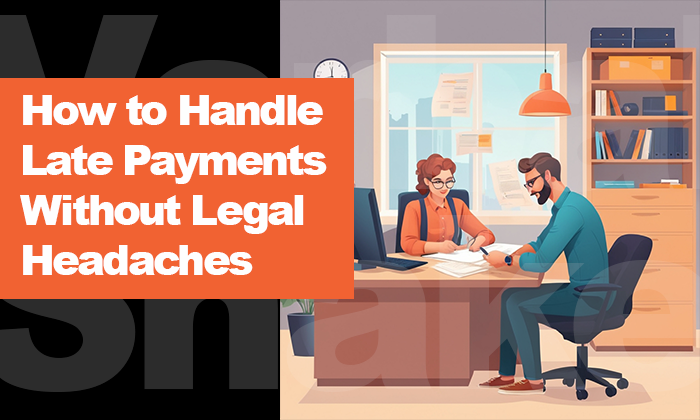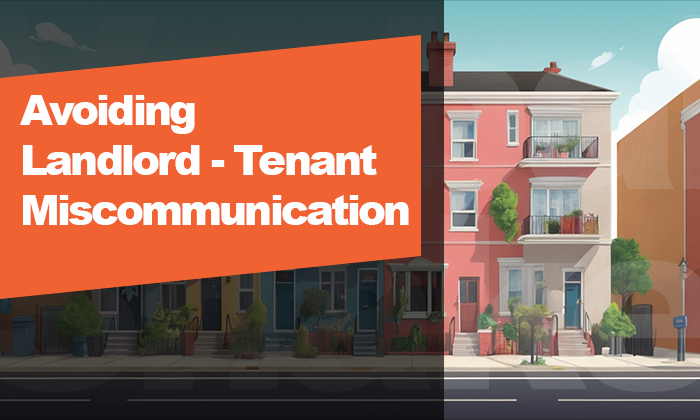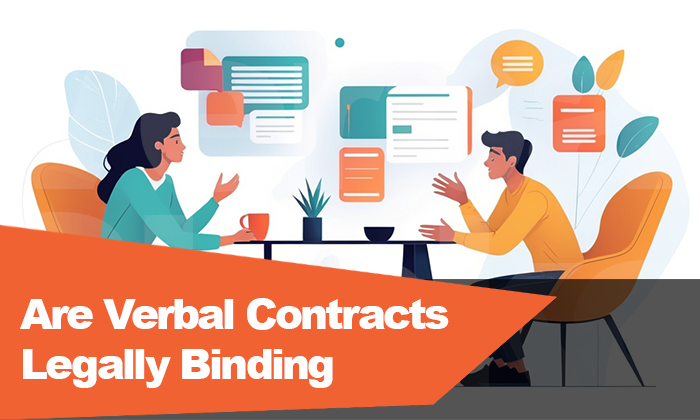How to Handle Late Payments Without Legal Headaches

Late rent payments are a common headache for landlords, but they don’t have to lead to legal battles or lost income. With the right strategies, you can handle late payments professionally while maintaining positive tenant relationships and protecting your cash flow.
Here’s how to handle late payments strategically, using effective communication and clear agreements to keep your rental business running smoothly.
1. Set Clear Expectations from Day One
Why It Matters:
Most late payment disputes can be traced back to unclear expectations. Tenants need to know exactly when rent is due, what happens if they pay late, and the consequences of non-payment. Clear communication from the start prevents misunderstandings later on.
How to Do It:
Include Late Fees and Grace Periods in Your Rental Agreement
- Specify the due date, grace period (if any), and the exact amount of late fees.
- Make it clear that late fees are non-negotiable, which encourages timely payments.
Document Verbal Agreements with Verbal Shake
- If you agree to any verbal changes (e.g., extending the payment deadline), record them using Verbal Shake.
- This avoids the “I thought you said…” argument later.
Communicate the Consequences Clearly
- Tenants shouldn’t be surprised by late fees or eviction notices.
- Use a welcome packet or move-in checklist to explain the rent collection process and consequences of late payments.
Real-World Example:
A landlord verbally agreed to waive a late fee “just this once.” The tenant interpreted this as flexibility for future payments, leading to repeated delays. Using Verbal Shake would have clarified that this was a one-time exception, preventing future misunderstandings.
2. Send Friendly but Firm Reminders
Why It Matters:
Late payments are often unintentional—people forget. Friendly reminders can solve the problem before it escalates.
How to Do It:
First Reminder: A Polite Text or Email on the Due Date
- Keep it friendly and non-confrontational. A simple nudge can be enough to prompt payment.
- Example: “Hi [Tenant’s Name], just a quick reminder that rent was due today. If you’ve already paid, please ignore this message. Thanks!”
Second Reminder: Formal Notice After 3-5 Days
- If a few days pass without payment, follow up with a more formal reminder that references the lease terms.
- This reinforces the seriousness of the situation while remaining professional.
Pro Tip: Use Multiple Channels
- A text message or email is quick, but a phone call or face-to-face conversation can be more effective.
- Document all communication to maintain a paper trail in case the situation escalates.
3. Offer a Short-Term Payment Plan (But Get It in Writing!)
Why It Matters:
Not every late payment is due to negligence. Sometimes tenants face genuine financial difficulties. Offering a payment plan keeps cash flow moving while avoiding the cost and hassle of eviction.
How to Do It:
Be Flexible but Firm
- Offer reasonable payment plans, like paying 50% now and the rest by a specified date.
- Make it clear that this is an exception, not a new policy.
Document Everything with Verbal Shake
- Even if agreed verbally, document the payment plan using Verbal Shake to avoid disputes later.
- Example: “Tenant will pay 50% of December’s rent by the 15th and the remaining 50% by the 30th. Failure to meet these deadlines will result in a late fee as per the lease agreement.”
Set Clear Terms and Consequences
- Include specific dates, amounts, and consequences for missed payments.
- Consistency is key—don’t make exceptions or change the terms once agreed upon.
Real-World Example:
A landlord verbally agreed to a tenant’s request to split rent into two payments. The tenant missed the second payment, claiming they thought the agreement was flexible. Using Verbal Shake would have created a clear record of the payment plan and consequences for missed deadlines.
4. Enforce Late Fees Consistently
Why It Matters:
Late fees are not just about compensation—they’re about encouraging timely payments. Being inconsistent undermines your authority and invites future delays.
How to Do It:
Stick to the Policy in Your Lease
- If the lease specifies a late fee, enforce it every time. This creates a predictable system for tenants.
Avoid Waiving Late Fees
- Waiving a late fee once sets a precedent that tenants may expect again.
- If you do decide to make an exception, document it using Verbal Shake to clarify that it’s a one-time arrangement.
Communicate Clearly and Professionally
- Let the tenant know the late fee is part of the lease agreement and cannot be waived.
- Use polite but firm language to maintain a professional relationship.
5. Take the Next Steps If Rent Remains Unpaid
Why It Matters:
If reminders and payment plans don’t work, it’s time to take formal action. This protects your income and shows tenants that you take payment seriously.
How to Do It:
Issue a Formal Notice to Pay or Vacate
- Follow local laws regarding eviction notices. Include the total amount due, late fees, and the deadline for payment.
- Verbal Shake can be used to document conversations about the notice, reducing disputes about what was communicated.
Document Everything
- Keep a detailed record of all reminders, notices, and communications.
- This will be essential if the case goes to court.
Follow Through Consistently
- If the tenant still doesn’t pay, proceed with the eviction process as outlined in your lease and local laws.
- Avoid making emotional decisions—stick to the policy for all tenants.
The Takeaway: Avoid Legal Battles with Clear Agreements and Communication
The best way to avoid legal battles is to prevent late payments in the first place:
- Set clear expectations from day one.
- Communicate consistently and professionally.
- Document every agreement using Verbal Shake, from late fee policies to payment plans.
Verbal Shake makes it easy to track commitments, avoid misunderstandings, and protect your rental income.
Want to Learn More?
We’re launching soon! Drop us a message in our contact form to stay updated.



